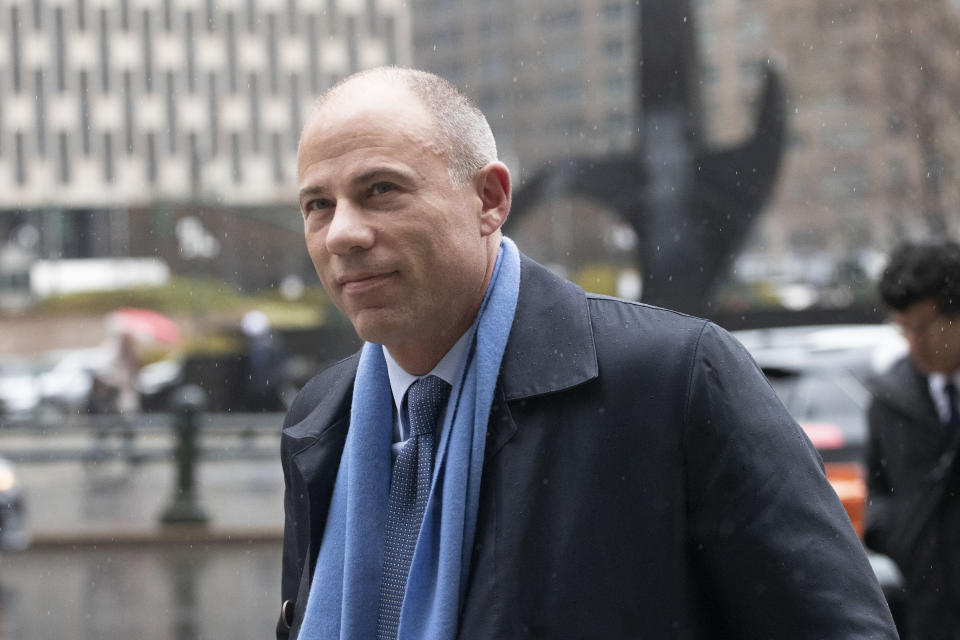With Michael Avenatti trial looming, new Nike documents prompt questions

In August 2019, Michael Avenatti's lawyers filed a motion in his federal extortion case that caused a stir. They revealed alleged payments to former college stars Zion Williamson (Duke) and Romeo Langford (Indiana), and the motion alleged that “Nike executives had arranged for and concealed payments, often in cash, to amateur basketball players.”
The motion opened a compelling window into the underbelly of grassroots basketball. Memorably, one Nike employee expressed concern about carrying so much cash through an airport and texted that she'd “just say I sold my car,” if she were questioned by airport security.
A court filing by Avenatti this past weekend hints more text messages and emails that offer a window into Nike grassroots will be passed over to Avenatti's lawyers this week. In a conference call on Saturday morning, the federal government informed Avenatti's lawyers that an additional 4,000 pages of Nike documents would be handed over to Avenatti's defense team.
The Avenatti filing questions why Nike produced only an additional 6,300 pages after Avenatti's arrest in March 2019 and why these added 4,000 documents are emerging only now, with the trial just a few weeks away. The filing states that only after reviewing the documents will Avenatti's defense be able to determine “whether Nike has (or not) ‘fully cooperated’ with the government's investigation as it now claims.” “For reasons we do not yet know for certain, the documents were not produced by Nike until after Mr. Avenatti was arrested for demanding an internal investigation.”
The filing also questions Nike's level of cooperation with the government considering the late release of so many pages of documents.
The purpose of Avenatti's lawyers' filing was to request additional time to review all the documents before responding to a different motion. The government has moved to quash the subpoenas to testify for numerous top Nike executives. The executives include numerous Nike boldface names, both high-ranking executives and grassroots staples. They include John Slusher, one of Nike's top executives, and Nike basketball mainstays Lynn Merritt and Nico Harrison. They also include prominent figures in the Nike grassroots world – Carlton DeBose and Jamal James.
Since Nike was served with a federal grand jury subpoena in September 2017, it has produced 17,800 pages of documents. Few of those documents have come to light publicly, aside from the Avenatti motion in August.
The government appears to be against more such information coming forward, as a filing on Sunday shows they don't want Avenatti's extortion trial to become a referendum on the ethics of Nike grassroots basketball. The filing disagrees strongly with Avenatti's prior claims that he had knowledge of criminal acts by Nike. (The government's extortion case against Avenatti is based on his request for millions to “investigate” the company, as he was made known of allegedly illegal acts by representing veteran Nike grassroots coach Gary Franklin.)
In the filing, the government says of Avenatti: “It does not appear that the defendant ever possessed proof of criminality by anyone at Nike (despite his repeated public allegations); he merely came into possession of alleged facts that might be embarrassing and harmful to Nike if publicized in a particular way.”
The filing also counters Avenatti's claim that he should be able to “offer evidence of specific purported misconduct by Nike.” The government states in the filing: “The defendant fails to explain in any logical fashion how his “general” knowledge would justify admission of evidence of “specifics” of which he was not aware. In any event, to the extent the defendant is asserting that he demanded to be hired to do an investigation not because his client asked for it, but because he was aware of Nike's alleged problem from news reports and had come into possession of embarrassing evidence, this is simply a description of an extortion scheme and not a legally permissible defense.”
More from Yahoo Sports:

 Yahoo Finance
Yahoo Finance 